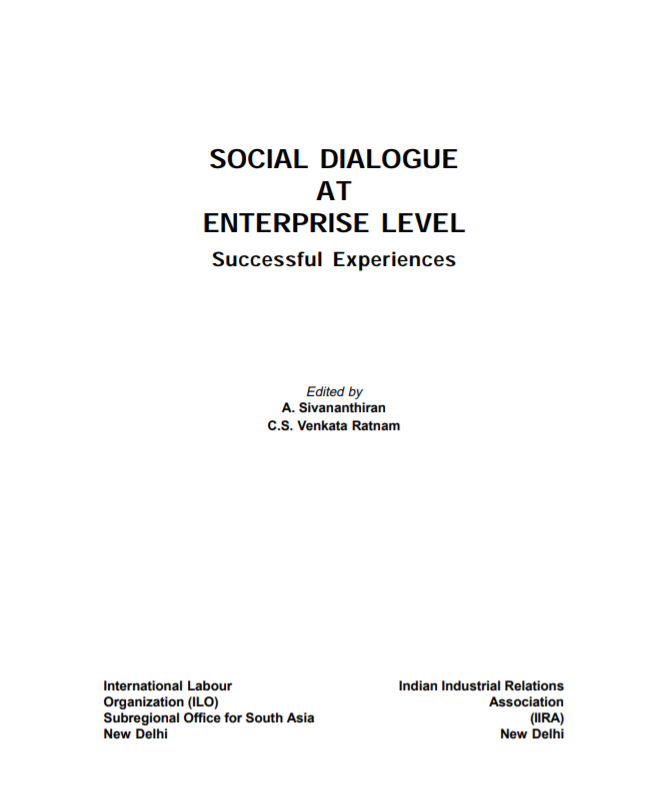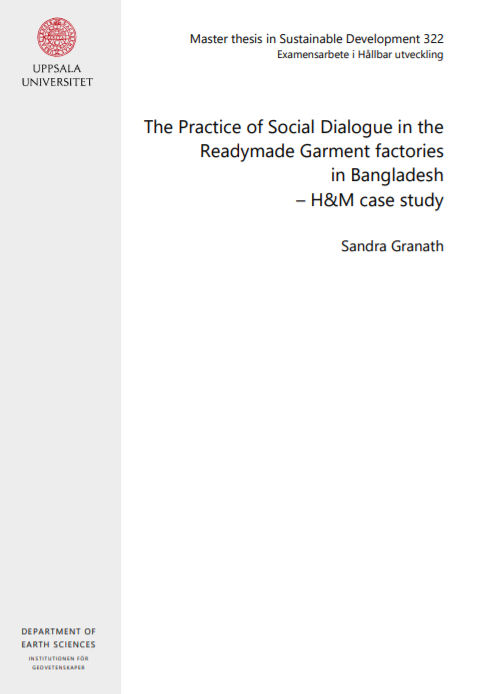Abstract
The Bangladeshi garment sector is a leading garment manufacturing industry in the world that has been growing constantly during the last decades. Today the garment sector represent the 80% of the national export and counts USD 19 billions revenues; these numbers describe the sector as the most important manufacturing industry in Bangladesh. The numbers are also outstanding when it comes to number of workers employed, about five millions, and number of factories about five thousands of different sizes. The cheap labour cost attracted many international brands that chose the Bangladeshi factories to produce their products for the European and US markets that take up to the 60% and 20% of the total export. Despite the impressive numbers presented, the level of working conditions cannot be described with the same positive attitude. In fact to an increasing level of profit and continuous expansion, the new wealth has not been equally distributed and workers are employed in factories that too often can be categorised as sweatshops. The working conditions do not allow a decent level of living for garment workers that are exploited and forced to meet exhausting production quota for very little level of wage and very low social security. The situation is even more worsened by the very low power that unions have and their limited activities that cannot ensure a proper protection of workers’ rights. In this thesis project we used the literature to understand the current status quo of the working conditions in the garment sector and to identify the major factors that influence, impact and contribute in making the labour standards low. We used the interviewing methodology to gather facts and opinions of the current system and to organize the information and draw the status of the system. Afterwards we analysed the findings using cultural and economic indicators and the design of recommendation that could contribute in improving the working conditions’ level. Through the literature review and the interviews we defined the working conditions as: wage, job security, safety, discrimination, harassment and freedom of association; through the analysis we could acknowledge that workers are clearly exploited and the conditions are far to comply with the International Labour Standards defined by the international organizations. In the specific we analysed how two factors, compliance and social dialogue impact on the working conditions; the result shows the very low law enforcement level and little practice of a dialogue among government, business associations and workers, where the latter has almost no power; we can conclude that they significantly contribute to keep the working conditions low. Finally we provided recommendations to improve the working conditions and distribute the benefits among workers, employers and government, guaranteeing the sectorial long-term expansion and the significant benefits for global buyers.
For the original source, please click here.






